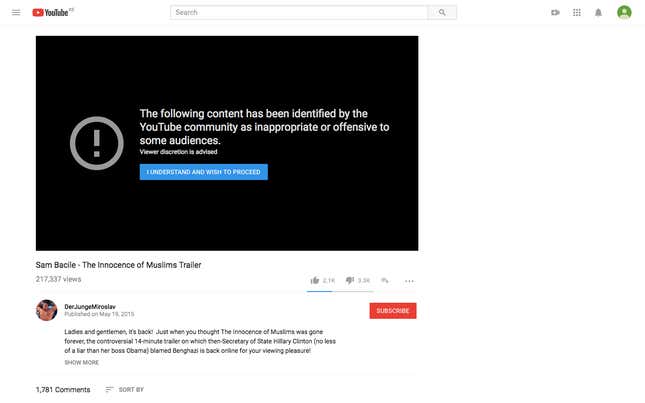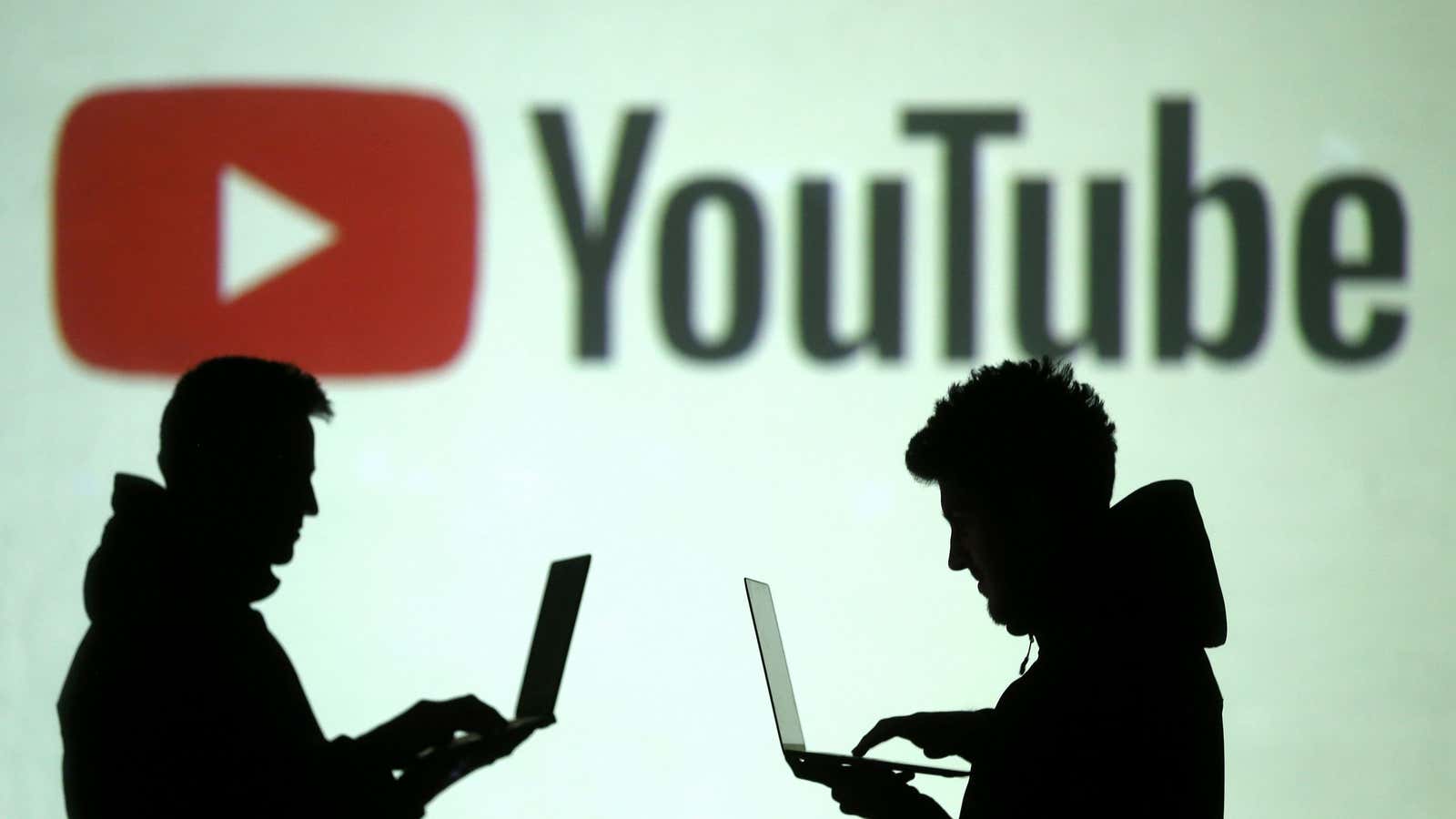Egypt’s top administrative court has ordered authorities to block YouTube for a month over a video that disparages the prophet Mohamed.
The decision is the latest in a years-long saga over the 2012 trailer for Innocence of Muslims, an anti-Islamic film which depicted the prophet in a negative light. In 2013, a lower administrative court ordered Egypt’s ministry of communications to block the video-sharing website, but the ruling was stayed as the case was appealed in the courts.
It was not yet clear whether Saturday’s verdict was being implemented. Sources in Egypt confirmed to Quartz that YouTube was still accessible as of today (May 28). Mohamed Hamid Salem, a lawyer who filed the case in 2013, told Reuters the ruling also orders that all links that broadcast the film be blocked.
The 14-minute low-budget trailer, which depicted the prophet as a religious fraud and a womanizer, was produced in the US by filmmakers who were influenced by the anti-Islamic, Egyptian-born preacher Zakaria Botros Henein. When it first came out in 2012, the video triggered deadly riots across North Africa, the Middle East, and the Muslim world. Extremists also used hostility to the film as a pretext to launch attacks on US interests abroad.
After YouTube removed the movie, a US federal appeals court ruled in 2015 that the website should not have been forced to take it down. The video was then reposted on YouTube, with a warning that cautions viewers it contained “inappropriate or offensive” material.

Egypt’s government has tightened its restrictions on the internet and free expression over the last few years. Officials blocked hundreds of websites ahead of presidential elections this year, and have repeatedly disrupted voice over internet protocol services for users who use messaging apps such as FaceTime, Viber, and WhatsApp.
Last month, the nation’s top mufti declared the purchase of promotional likes on Facebook as a form of fraud. Just weeks before, the minister for telecommunication, Yasser Al-Qady, announced the government would launch its own social network, Egypt Face, to compete with Facebook in order to protect citizens’ data and to fight extremist ideas online.
All this happens as Egypt boasts of a booming tech ecosystem, with investors making a comeback after years of political and economic turmoil.
